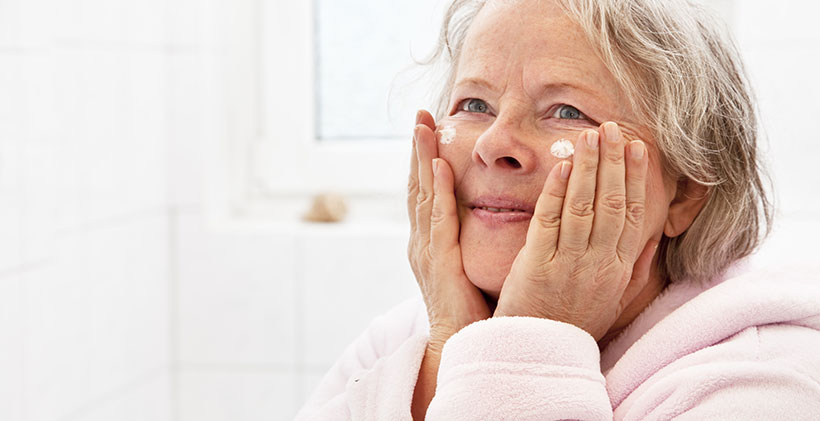Keeping skin healthy poses challenges at any age. From acne to sun damage to serious dryness, skin problems can surface throughout life.
As your skin matures, what are some steps you can take to keep it looking great?
Cleanse Your Face Correctly
Washing your face properly is not as simple as it seems, and doing it incorrectly can cause damage. First, use a separate product for makeup removal, since your cleanser may not take off all makeup residue.
Try to cleanse both at night and in the morning — when bacteria and oil have built up on skin overnight — and use lukewarm water rather than hot. Avoid harsh scrubs and be sure to rinse after using any type of cleansing wipes.
Use Caution with Mechanical Brushes
Mechanical brushes — the ones that deep-clean skin as they spin — have become popular in recent years, but they can be tough on dry or sensitive skin. If you opt for a mechanical brush, start out by using it just twice a week to see how your skin reacts and increase the frequency gradually. Choose a brush head that’s right for your skin type, such as delicate or sensitive.
Take Care of Age Spots and Skin Tags
Age spots are the brown, flat spots that appear on hands, back, feet and arms and are attributable to too much time in the sun. While they can’t be removed, you can prevent more age spots by using a broad-spectrum sunscreen every day.
Skin tags — small, raised growths that often appear on eyelids — become more common with age, especially among women. While skin tags are usually harmless, they can become irritated; your doctor can advise you on removing them.
Avoid Excessive Sun Exposure
One of the most effective ways to keep your skin healthy is minimizing exposure to harmful UV rays. Avoid the sun during the times that UV rays are strongest — generally 10 a.m. to 3 p.m. Be aware that radiation is still present on cloudy days and that UV rays can pass through water.
Always use a broad-spectrum sunscreen with an SPF of 15 or above, and choose a water-resistant product if you’ll be swimming or exercising.
Ward off Dry Skin
Dry patches — especially on elbows, lower arms and lower legs — can result from drinking insufficient liquids, smoking, spending time in the sun, using too much drying soap, or being in an environment with dry air. Individuals also lose oil and sweat glands with age, which can contribute to skin dryness.
To combat dry, itchy skin, use a moisturizer on your face and body every day. In addition, try a milder soap. A humidifier also can add moisture to your environment, in turn continuously moisturizing your skin.
Keeping skin healthy can become more of a challenge with age. By avoiding the sun, cleansing correctly and moisturizing regularly, you take important steps toward preserving your healthy glow.

